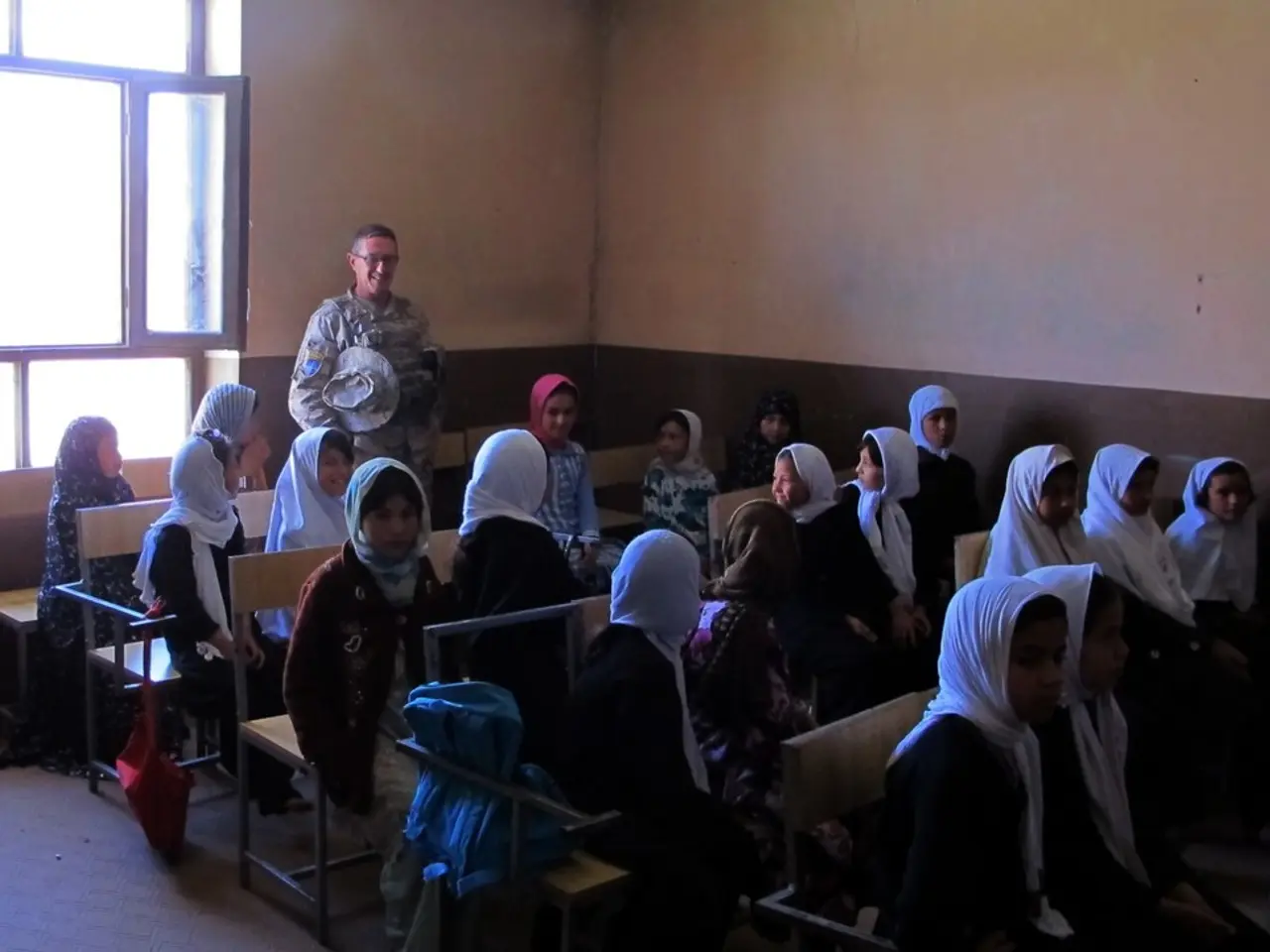"Nightmare scenario": Student veterans and their advisors claim that VA's educational funding cuts are disrupting their academic progress
In recent times, dozens of military veterans have found themselves in a predicament, waiting for their GI Bill student benefit checks. This delay is due to staffing cuts at the VA and the U.S. Department of Education, which have significantly increased processing times and errors in handling GI Bill benefits.
The VA, already strained by the departure of nearly 17,000 employees by June 2025 and an expected 12,000 more by September's end, has struggled to process benefits timely and accurately. This has resulted in backlogs and benefit denials, even for those entitled to loan forgiveness due to disabilities. The Education Department, too, has faced personnel reductions and has been unable to adequately respond to issues, further complicating veterans’ navigation of benefit rules.
These staffing disruptions have created a "complete nightmare" for many veterans, according to advisers and student veterans. The system is riddled with pervasive delays, errors, and inadequate employee knowledge, leaving many veterans without clear guidance or resolution of cases.
The American Council on Education has warned that these staffing disruptions threaten access to benefits at a time when more veterans are seeking higher education and training. The delays and errors can have a profound impact, causing stress and anxiety that translates to the classroom. Phillip Morris, an associate professor at the University of Colorado at Colorado Springs, has observed this firsthand.
The delays in GI Bill benefits are not just affecting veterans at Colorado Springs. At Miramar College in San Diego, student veterans waited months to hear about VA work-study contracts. Other veterans went weeks without textbooks due to delayed VA payments. Similarly, some veterans at Pikes Peak State College, a community college in Colorado Springs, did not receive their GI Bill benefits as the semester wound down in May.
The situation is particularly concerning for low-income veterans and those from diverse backgrounds, according to Lindsay Church, executive director of Minority Veterans of America. The risk is high for these veterans, who may rely on the GI Bill benefits for their educational and career advancement.
The new administration has brought about big personnel cuts to both the VA and the U.S. Department of Education, which critics contend may lead to reduced scrutiny of the for-profit college sector. This sector, which already faces accusations of taking advantage of veterans' tuition payments without providing the promised educational benefits, has started targeting veterans again due to the reduced oversight at the Education Department's divisions.
Despite the planned layoffs and departures of nearly 30,000 VA employees, numerous experts and administrators have reported an increase in student veterans quitting due to benefit delays this year. The VA's paperwork often has errors, causing further delays.
However, there is some positive news. The GI Bill benefit checks arrived in April 2021 for many veterans who had been waiting. But the challenges remain, and it is crucial that the VA and the U.S. Department of Education address these issues to ensure that student veterans receive their benefits promptly and accurately.
- The new education policy, which involves significant personnel cuts at the VA and the U.S. Department of Education, has raised concerns among education and self-development advocates, as it may lead to reduced scrutiny of for-profit colleges and the exploitation of veterans' tuition payments.
- The delays and errors in processing GI Bill benefits have disproportionately affected lower-income veterans and those from diverse backgrounds, potentially hindering their access to higher education and subsequent career advancement.
- Innovation in education policy and legislation is necessary to tackle the issues faced by student veterans, such as the delays and errors in handling GI Bill benefits, which can cause significant stress and anxiety that impact academic performance.
- The general news has frequently highlighted the struggles of student veterans navigating the complex systems, with reports of veterans quitting due to the prolonged delays and paperwork errors in receiving their GI Bill benefits.




